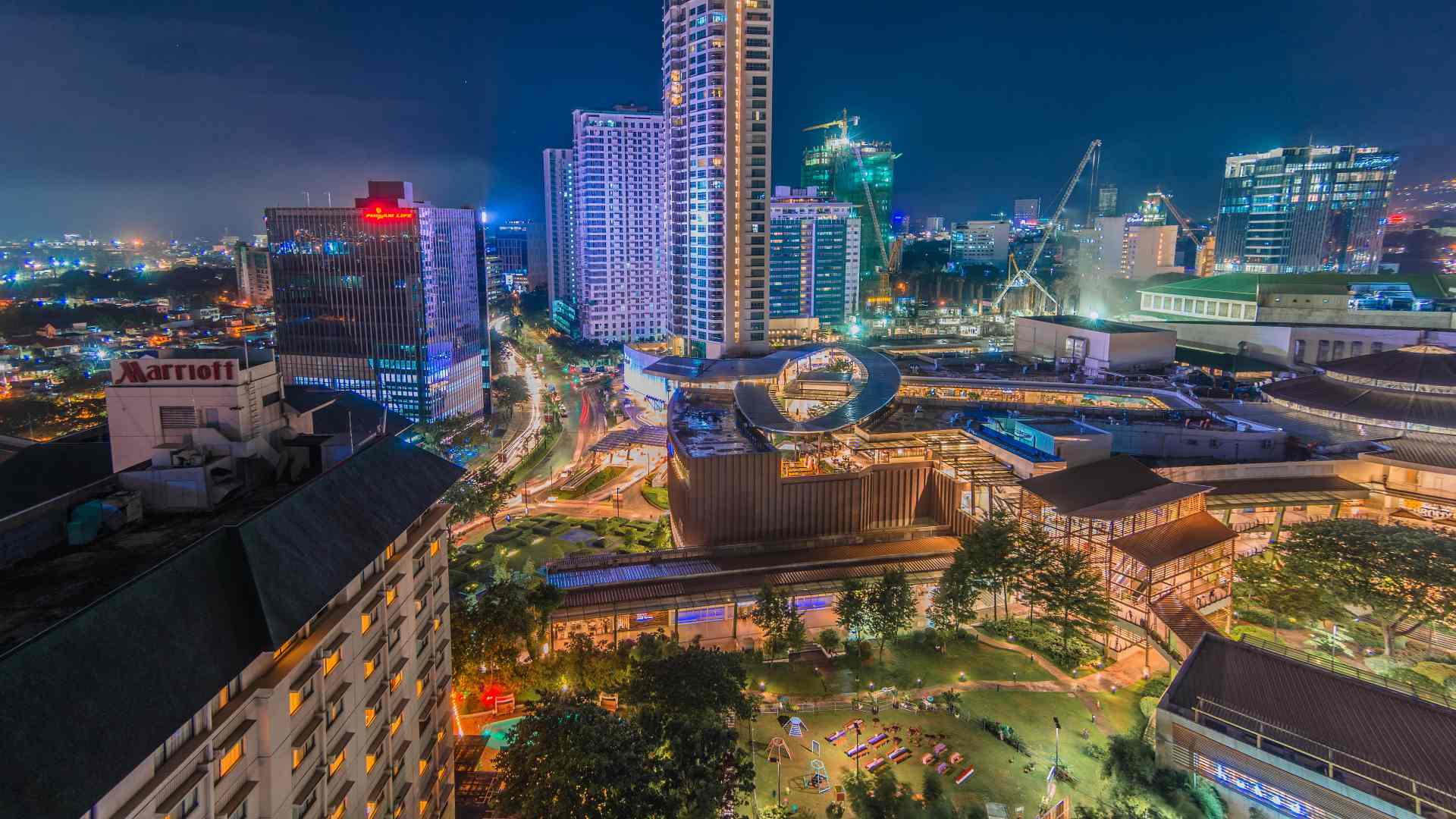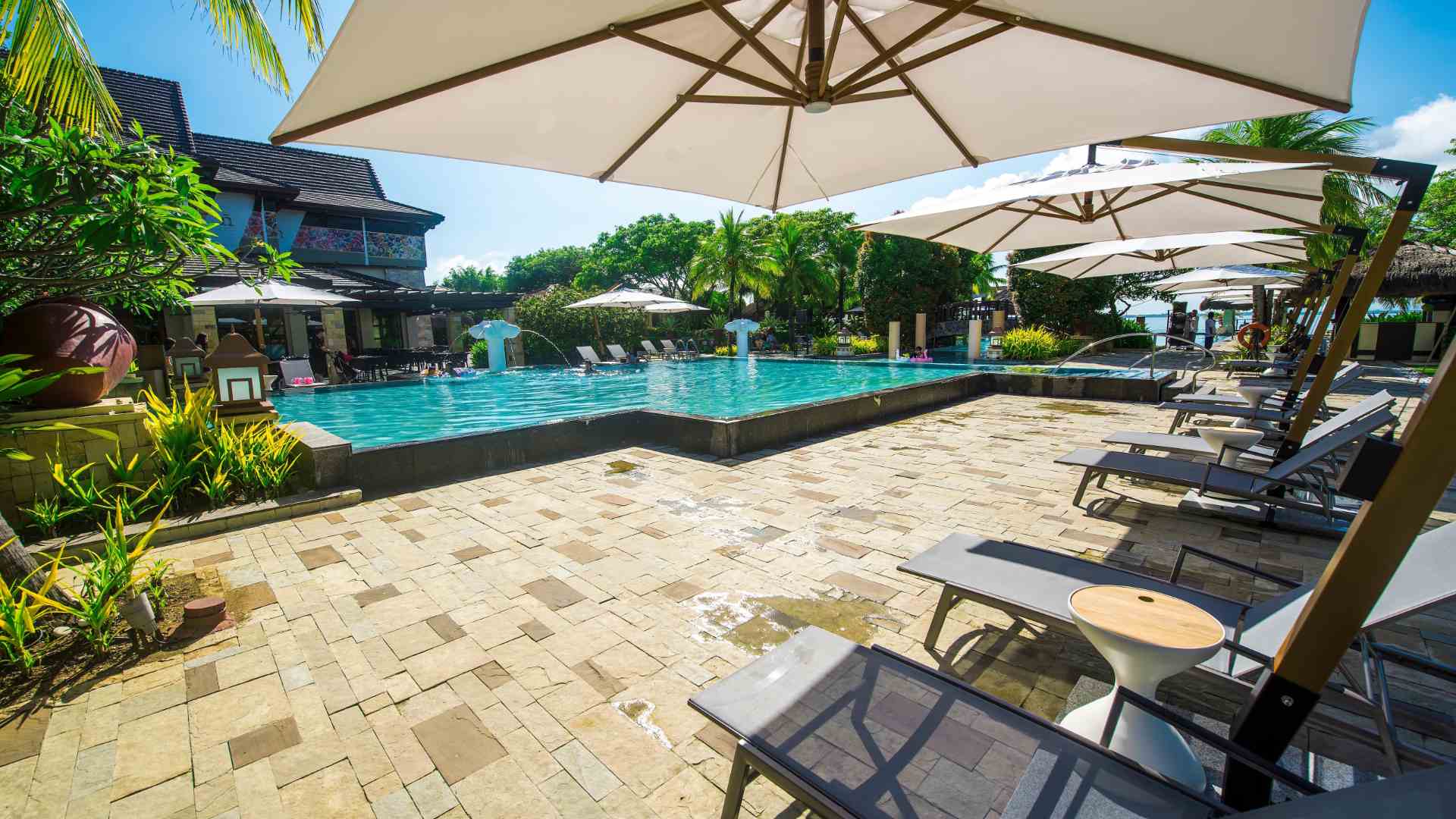The Impact of Foreign Investment on Cebu’s Real Estate Market
Cebu’s real estate scene is growing fast—honestly, it’s hard not to notice. The impact of foreign investment on Cebu is a big part of what’s pushing the city into the spotlight, bringing in wave after wave of high-end residential and commercial projects. Buyers and companies from China, Japan, South Korea, the US, and Europe are snapping up luxury homes and office spaces, fueling demand across the city.
Now, you’ll see shiny new business districts, sleek condos, and modern office buildings that attract both locals and foreigners. Cebu’s rise isn’t just about buildings, though—its tourism industry is booming, infrastructure keeps improving, and more people want to live where the lifestyle is vibrant and laid-back at the same time.
Key Takeaways
- Foreign investment is shaking up Cebu’s real estate market
- Luxury housing and modern office demand are on the rise
- Cebu’s growth is drawing both local and global investors
Foreign Investment Shaping Cebu’s Real Estate Landscape

Foreign investors keep making waves in Cebu’s property market. Major buyers, comparisons to other cities, and steady remittances from Filipinos abroad all play a part in shaping what’s hot—and what’s not—when it comes to property values and new trends in the region.
Leading Foreign Buyers and Their Preferences
Chinese, Japanese, and Korean buyers are super active in Cebu. They usually go for condos in Cebu Business Park, IT Park, and Mactan Island, drawn by modern amenities, safety, and being close to shops and offices.
Japanese buyers often pick mid- to high-end units for longer stays or retirement, while Koreans like spots near schools and leisure attractions.
Chinese investors typically chase after new builds and pre-selling projects, hoping for rental returns or property appreciation. Meanwhile, some Americans and Europeans are more interested in beachside homes in Mactan and Lapu-Lapu City—seems like the lifestyle factor matters just as much as the investment angle for them.
Comparison with Metro Manila’s Property Market
Cebu’s market has a few things in common with Metro Manila—property values are climbing, and there’s strong demand for homes and office space. But Cebu’s prices are still generally easier on the wallet, which makes it a magnet for first-timers and repeat foreign investors alike.
Unlike Manila, Cebu’s got more room for resort and leisure developments. Mactan Island, for example, is famous for its beachfront condos and hotels, which you don’t really find in Metro Manila’s urban sprawl.
Business hubs like Cebu IT Park and Cebu Business Park are solid alternatives to Makati or Bonifacio Global City. More foreign companies are setting up regional offices here, mostly because of the skilled workforce and lower costs. Makes sense, right?
The Role of Overseas Filipino Workers and Remittances
Overseas Filipino Workers (OFWs) are a huge force in Cebu’s property market. Their remittances help families buy houses, lots, or condos back home.
Remittances often go toward pre-selling deals or paying off new home construction. Developers in Cebu are well aware of this and regularly market directly to OFWs, offering flexible payment terms and even virtual tours for those abroad.
Some OFWs buy real estate for their own future use, while others are more focused on rental income or long-term gains. Either way, their steady buying helps keep Cebu’s property market lively and, honestly, pretty stable.
High-End Residential Developments Driven by Foreign Demand

High-end residential projects are popping up everywhere, especially around Mactan, Lapu-Lapu, and Cebu City. There’s a noticeable uptick in interest from foreign buyers and renters—luxury condos, vacation homes, and rentals aimed at expats, retirees, and young pros are now in high demand.
Surge in Luxury Condominiums
Luxury condos are everywhere in Cebu Business Park, IT Park, and along the Mactan and Lapu-Lapu coastline. Developers keep building taller towers packed with pools, gyms, and round-the-clock security—pretty appealing, honestly.
Most of these units go to buyers from Japan, South Korea, and China, who want modern buildings close to shops and offices. Developers like Ayala Land and Megaworld know exactly what these buyers want and design accordingly.
Prices for luxury condos keep climbing, which says a lot about demand. In some central business districts, prices are even catching up to those in Metro Manila.
Second Homes and Vacation Properties
More foreigners—especially retirees from Europe and the US—are buying in Cebu for second homes. The sunny weather, clean beaches, and easy access to daily needs are huge selling points.
Most vacation properties are in Mactan and Lapu-Lapu, with options ranging from beachfront villas to serviced apartments. These areas are favorites for their safety and resort-style vibe.
Flexible ownership rules make it easier for foreigners to buy. Some even rent out their places when they’re away, earning extra income on the side.
Rental Market for Expatriates and Young Professionals
There’s steady demand for quality rental units from foreign workers, business execs, and young professionals. Many prefer fully furnished condos in Cebu IT Park, Mandaue, and Talisay because they’re close to work and everything else they need.
Rental options range from long-term leases for expats to short-term stays for visiting execs. Properties managed by reputable developers usually offer flexible terms and good amenities.
This ongoing demand keeps rental rates in upscale areas pretty stable, which encourages even more projects targeting international tenants.
Rising Commercial Real Estate and Business Districts

Cebu’s commercial real estate is changing fast. Foreign investment is driving the rapid rise of BPO hubs, IT parks, and new office buildings in and around the city.
Growth of Business Process Outsourcing Hubs
Cebu is a top spot for Business Process Outsourcing (BPO) companies. You’ll find some of the country’s biggest BPO hubs in Cebu IT Park and Cebu Business Park, thanks to investments from the US, Europe, and Asia.
Most BPO centers are modern, tech-ready, and secure, which appeals to global brands and international clients. The boom in this sector is creating thousands of jobs for locals.
Lapu-Lapu City and other parts of Metro Cebu are feeling the benefits, too. Reliable infrastructure and a skilled workforce keep BPO centers expanding across Cebu.
Expansion of IT Parks and Special Economic Zones
Foreign funding has sped up the growth of IT parks and special economic zones. Notable spots include Cebu IT Park, Cebu Business Park, and South Road Properties (SRP). These areas offer tax perks and business-friendly rules, attracting tech, logistics, and manufacturing firms.
Recently, more global companies have set up shop in these parks, driving demand for hotels, retail, and better transport.
Lapu-Lapu City and nearby Visayas regions are seeing similar investments. This is helping diversify the local economy and opening up new jobs for skilled workers.
Multinational Regional Offices and Corporate Developments
Big international companies are picking Cebu as their Visayas base. Many have set up regional offices in high-rises at Cebu Business Park or along Cebu City’s business corridor.
These firms work in finance, real estate, logistics, and tech. Their presence boosts demand for commercial leasing and encourages the rise of modern office towers.
New commercial spaces often feature cool architecture, green areas, and mixed-use zones with shops and restaurants. It’s a trend that’s good for local business and cements Cebu’s spot as a regional commercial hub.
Infrastructure and Accessibility Fueling Real Estate Growth
Major infrastructure upgrades are making a real difference in Cebu’s real estate sector. These projects have cut down travel times, encouraged more investment, and made the city even more attractive for businesses and people looking to settle down.
Impact of Mactan-Cebu International Airport
The Mactan-Cebu International Airport (MCIA) is pretty much the main gateway for people and trade in the region. Thanks to expanded terminals and some seriously upgraded amenities, Cebu’s now way easier to reach for both locals and international travelers.
MCIA links Cebu with a bunch of cities across Asia, the Middle East, and the rest of the Philippines. This kind of easy access brings in foreign property hunters, tourists, and investors. Airlines have rolled out more direct flights, so business trips and managing properties from abroad aren’t as much of a hassle as they used to be.
With the airport’s larger capacity and smoother operations, more investors are eyeing Cebu for real estate projects. Developers have started putting up projects closer to the airport, which has sparked growth in nearby neighborhoods. The steady rise in passenger numbers is also driving up demand for hotels and related services, giving the local property market a nice boost.
Benefits of New Transport Networks and Metro Cebu Expressway
New transport networks and the Metro Cebu Expressway have started to untangle Metro Cebu’s notorious traffic. These new roads chop down the time it takes to get between places like Mandaue, Lapu-Lapu, and Talisay, so everything feels a bit more connected.
The Metro Cebu Expressway runs over 73 kilometers, linking the north and south of Cebu. People can now get between homes, offices, and shopping areas a lot faster. Because of this, areas that once seemed too far out for daily commutes are suddenly worth considering.
Property values near these new roads have climbed. Developers—both residential and commercial—are flocking to sites along the expressway. With better access, you get more housing, malls, and offices popping up, shifting where growth happens in Cebu.
Seaport and Logistics Improvements
Cebu’s seaports have leveled up, letting the city handle more goods and passengers. Faster, more reliable port facilities make a big difference for businesses that need steady supply chains.
Places like Cebu International Port and Mactan Channel now have modern cranes, improved storage, and new logistics centers. This means companies can move products to market faster, making Cebu a solid pick for importers and exporters.
Better logistics have helped industries like manufacturing and retail expand. That’s pushed up demand for industrial and commercial spaces near the ports. Plus, having a reliable supply chain means building materials arrive on time, which helps projects stay on schedule and keeps costs from spiraling.
Tourism, Quality of Life, and Lifestyle Appeal

Cebu’s booming tourism, strong lifestyle perks, and retiree appeal have really turned the city into a hot spot for property investment. Places like Mactan, Lapu-Lapu, and Talisay blend natural beauty with practical perks for folks moving in.
Tourism Industry Boosting Property Demand
Millions of tourists visit Cebu every year, with numbers especially rising from South Korea, China, and Japan. Many are here for luxury resorts, diving, or checking out historic spots—Mactan Island is always a favorite. All these visitors mean there’s a bigger appetite for vacation rentals, hotels, and short-stays.
Developers have responded by building more serviced apartments and condos for folks who want to stay for weeks or months. That’s good news for property owners and investors, who often get solid rental returns during peak travel times. Lapu-Lapu City, in particular, has seen a wave of new resorts and villa communities to cater to this crowd.
| Popular Areas | Tourist Attractions | Rental Demand |
|---|---|---|
| Mactan | Beaches, diving, luxury resorts | Very high |
| Cebu City | Historic sites, nightlife, malls | High |
| Talisay | Mountain views, local resorts | Moderate |
Appeal to Retirees and Coastal Communities
Cebu’s become a favorite for foreign retirees, especially from colder places like Europe, North America, and East Asia. Many settle in coastal communities like Mactan and Talisay, drawn by the warm weather, nearby hospitals, and laid-back lifestyle.
It’s hard to ignore Cebu’s affordability compared to other Asian cities. Retirees often want homes with sea views, easy healthcare access, and secure neighborhoods. New developments now come with things like gated entrances, clinics, and recreation facilities aimed at this crowd.
Villages near the beach that cater to seniors are in high demand, so there’s been a surge in bungalows, low-rise condos, and mixed-use communities around Lapu-Lapu and Mactan.
Influence of Lifestyle Amenities on Investment Trends
People buying or renting in Cebu these days—locals and foreigners alike—expect more from their neighborhoods. Swimming pools, gyms, playgrounds, and shopping centers are almost standard now. If a project has direct beach access or killer views, prices jump and units move fast.
Developers love to highlight security, walkability, and community spaces to catch the eye of investors and families. Parks, events, and sports facilities add to the neighborhood’s draw. Because of this, areas near Mactan’s coast or Talisay’s mountain slopes are seeing more mid- and high-end projects go up.
Homes in these amenity-packed developments usually keep their value better. A lot of buyers want a place that supports an active, comfortable lifestyle, so more investment is flowing into quality-of-life-focused projects—not just those in prime locations.
Market Outlook and Long-Term Implications

Cebu’s real estate scene is going through big changes thanks to foreign investment. These shifts are affecting property prices, investment rules, and the kinds of new projects you see popping up.
Sustained Property Value Appreciation
Land and home prices in Cebu have been climbing steadily over the last decade. Strong foreign interest in both homes and commercial spaces is a big reason why. Colliers Philippines notes that international buyers—especially in prime spots—have pushed prices up in a lot of neighborhoods.
Developers are leaning into premium projects. High-rise condos, office towers, and mixed-use buildings are now everywhere, particularly in places like Cebu Business Park and Mactan Newtown. Rental rates have followed suit, especially for upscale apartments and office spaces.
Foreign investment has helped keep property values stable, even when the economy wobbles. Many see Cebu as a safe bet because of its steady market and constant urban growth.
Policy and Regulatory Considerations
Philippine law limits foreigners from owning land directly, but they can buy condo units. This shapes what kinds of properties are on offer. There’s a 40% cap on foreign ownership in condo projects, so locals stay in the mix.
There are perks for foreign-backed companies in special economic zones—think tax breaks and such. That brings in multinationals and pushes developers to create more business-friendly real estate. Zoning and urban planning changes might also tweak how new projects get approved.
Developers and investors usually work closely with regulators to stay on the right side of property law. As the market expands, having clear, stable rules will stay important for keeping foreign investment flowing.
Emerging Opportunities and Future Trends
Commercial projects tied to tech and outsourcing are on the rise. Smart buildings and green-certified spaces are popping up to attract global firms. Cebu IT Park and South Road Properties are hotbeds for this kind of growth.
With prices going up in the best areas, affordable housing is finally getting some attention. Some developers are now building mid-range condos and rental apartments for both locals and foreign renters.
Tourism-focused real estate—like hotels, resorts, and vacation homes—is another area with lots of potential. Investors are keeping an eye on policy changes and new infrastructure, like better transport links or airport upgrades, that could influence where the next big opportunities are.
Frequently Asked Questions

Foreign investment is driving demand for luxury homes and big commercial projects in Cebu. It shapes property prices, affects local budgets, and helps fund infrastructure upgrades.
How does foreign investment influence the availability of high-end residential properties in Cebu?
Foreign buyers have really ramped up demand for high-end condos and gated communities. Developers are building more luxury places, especially in business districts and along the coast. This means more options, but prices can get pushed up too.
What are the effects of foreign capital flow on the commercial real estate sector in Cebu?
New business districts, office buildings, and IT parks often get their funding from foreign companies. These investments create space for BPOs, multinationals, and retail centers, boosting Cebu’s profile as a business hub.
In what ways has foreign investment led to changes in property values and local market affordability in Cebu?
Foreign buyers usually pay more, which pushes up land and property prices. That’s great for sellers and developers, but it can make it harder for locals to buy homes. Some residents end up priced out of certain areas.
How is Cebu’s infrastructure development connected to foreign investment in real estate?
Big foreign investments help fund roads, bridges, and utilities. These improvements make new developments more accessible and attract even more investors. Infrastructure projects often go hand-in-hand with major real estate investments.
What impact does foreign investment have on the hospitality and tourism real estate market in Cebu?
Foreign companies and hotel chains put money into resorts, hotels, and serviced apartments, mostly for tourists and expats. You’ll notice more choices popping up, and honestly, the quality tends to go up too. This kind of growth makes Cebu more appealing for international visitors, and a lot of them end up staying longer than they planned.
What challenges does Cebu face in managing foreign investment towards sustainable real estate growth?
Cebu has to walk a fine line between encouraging growth and looking out for local communities and the environment. When development moves too fast, resources get stretched thin and living costs can shoot up. The city’s got its work cut out for it—setting up rules and planning standards that actually make sure new investments are both sustainable and fair for everyone. It’s not always easy, honestly.

